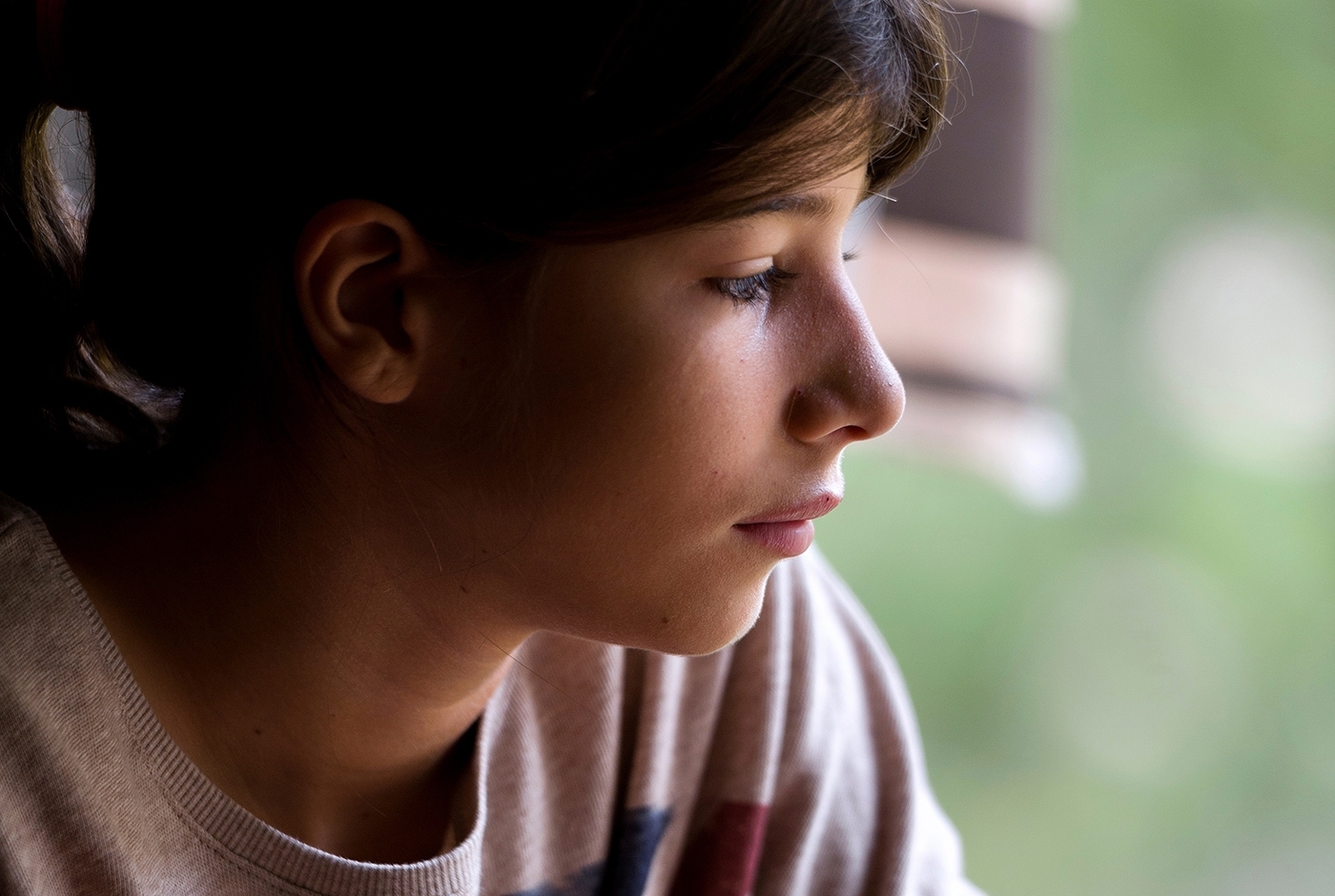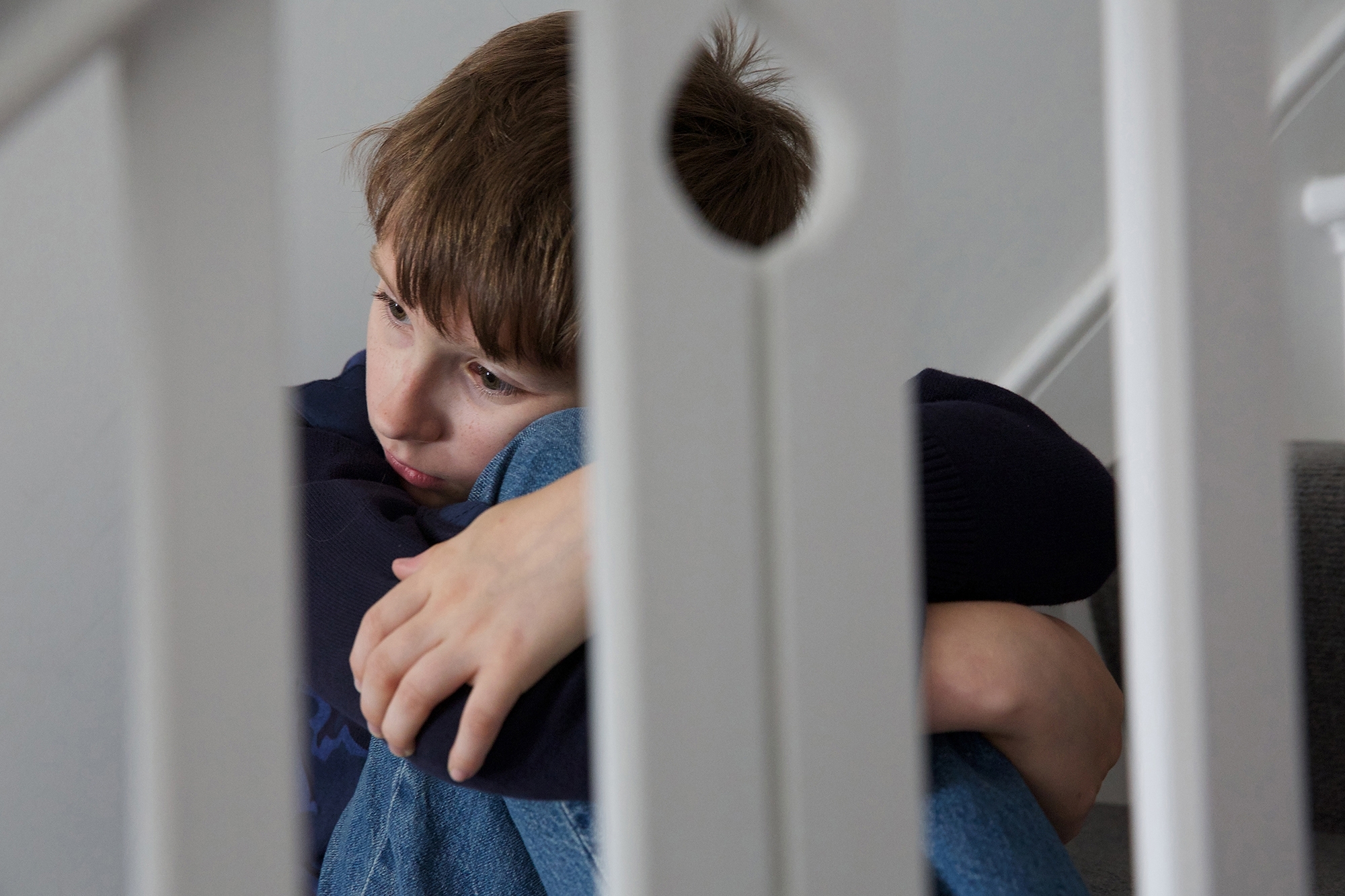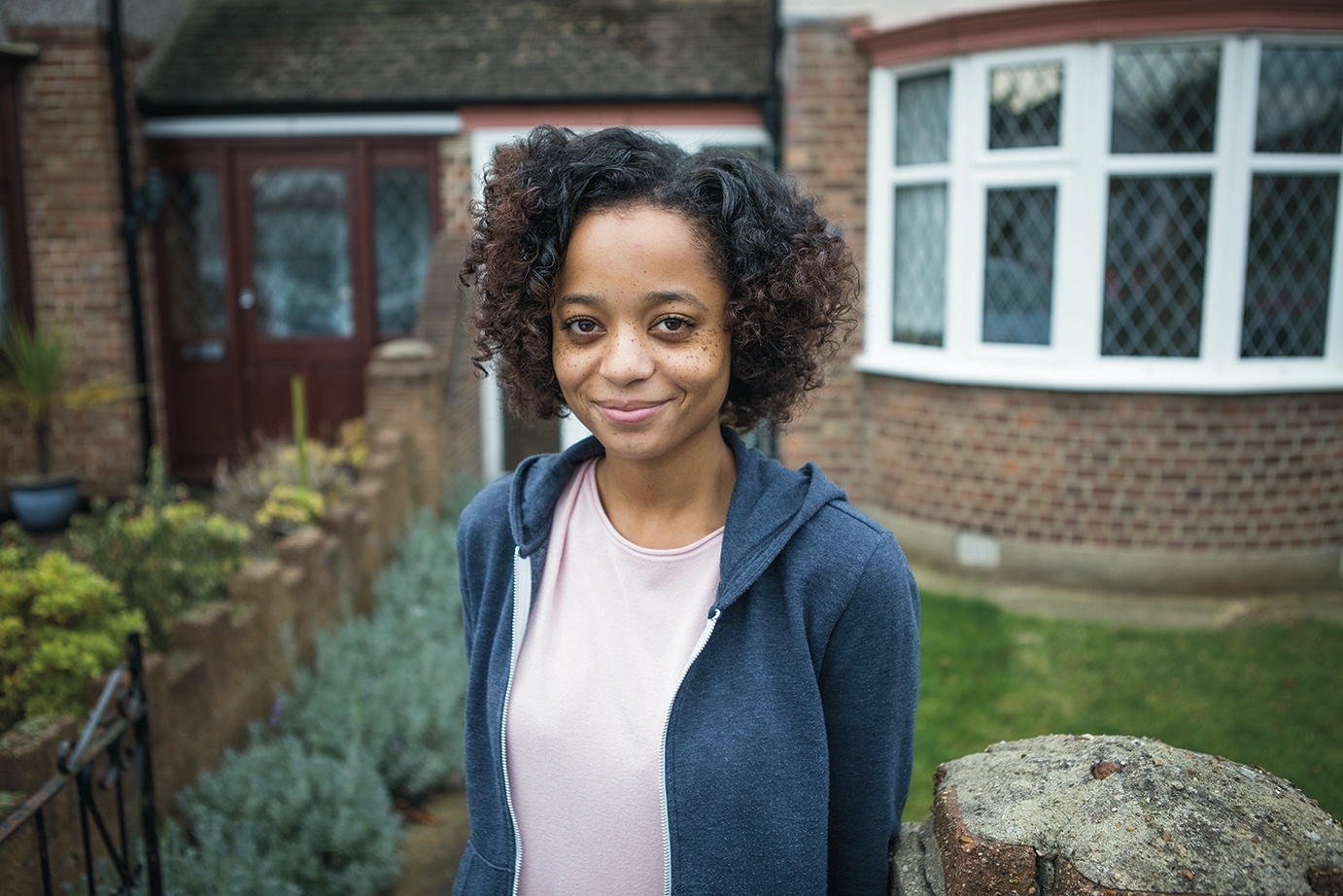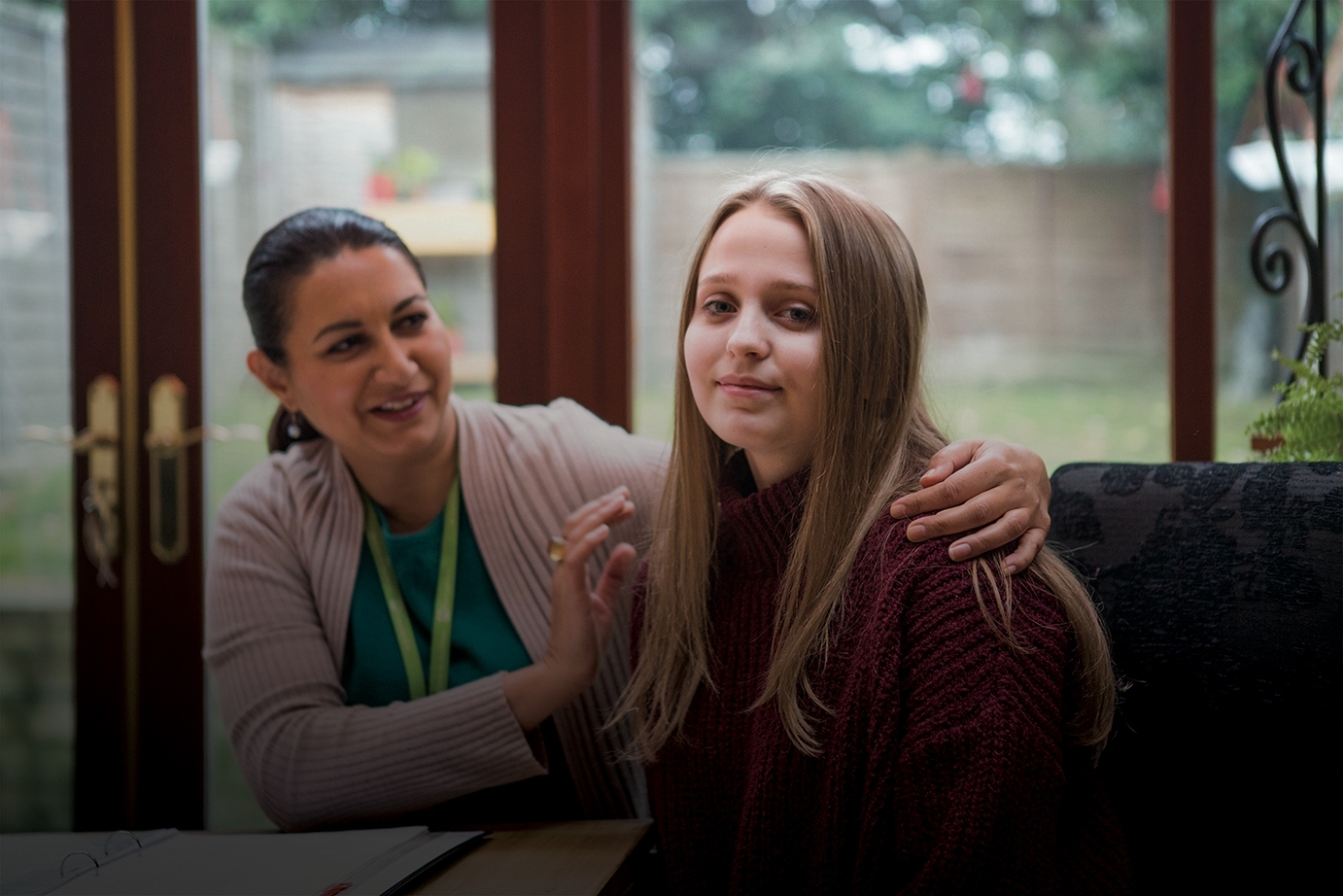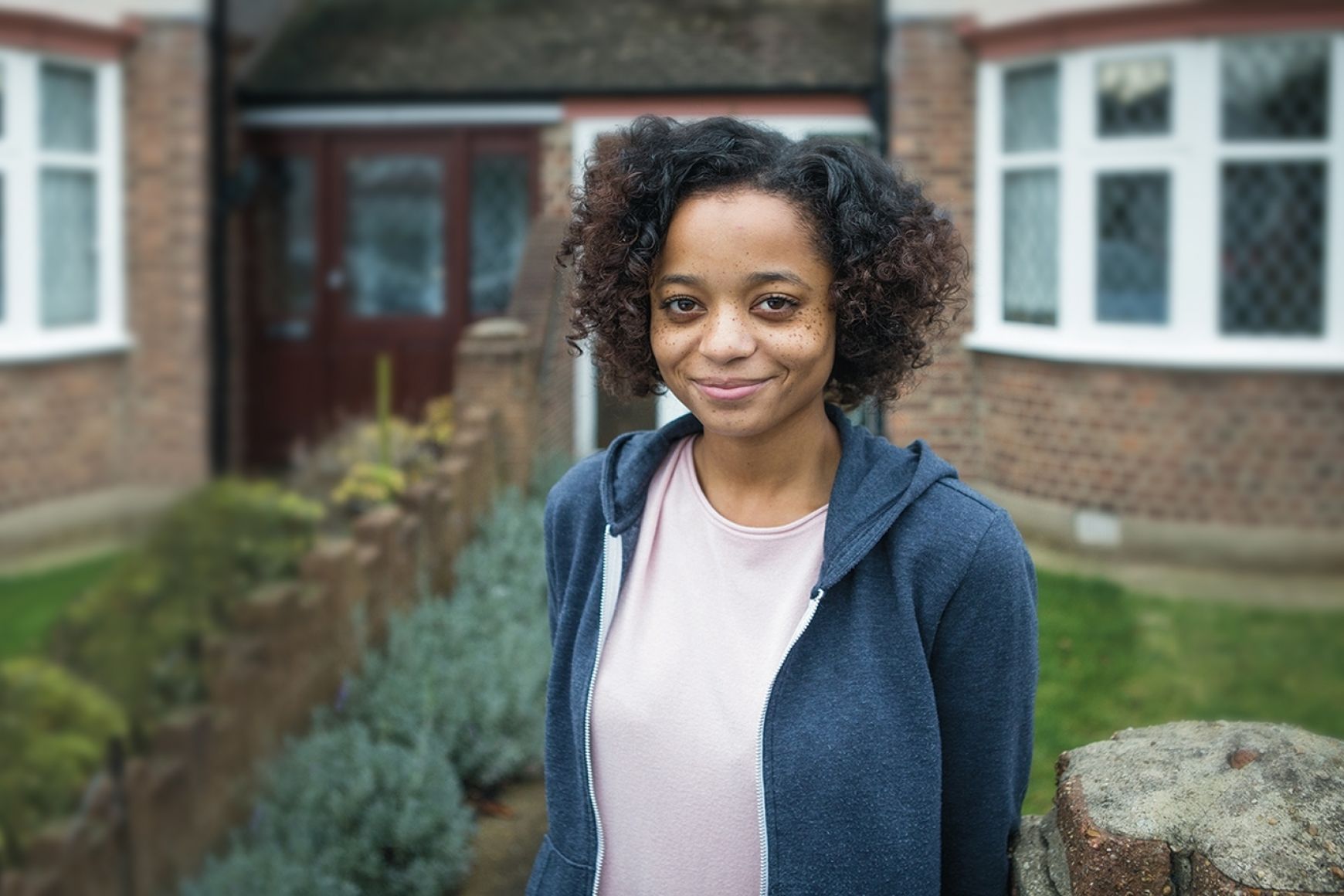
Our work
Safer Childhoods:
Child Sexual Abuse
Introduction
We believe that all children and young people should live safe from violence or abuse of any kind, and no child or young person should have to suffer from the impact of it.
Sadly, however, it is not always the case that children live safe from harm. Some children and young people’s childhood experiences limit their freedom and potential, and violate their human rights.
Child sexual abuse (CSA) is one such example of this. Sexual abuse can result in children and young people experiencing debilitating levels of trauma, which can have both an immediate and long-lasting impact.
While our ‘safer childhoods’ work spans a wide range of services focused on keeping children safe from harm, in 2017-18 we have continued to focus on helping eradicate CSA, and improving outcomes for children and young people who are impacted by it.
Estimates suggest that one in 20 children in the UK experience CSA before the age of 181. However, the true scale of CSA will always remain unknown, and this figure is likely to significantly underestimate the true scale of the problem.
From existing research evidence, the only groups currently identified as being more likely to experience CSA are those who are disabled or in residential care2. However, it cannot be assumed that any group of children have the power, and emotional and material resources to alter or control a perpetrator’s behaviour, and therefore all children should be considered to be at risk of sexual abuse.
A substantial proportion of the children and young people we work with in our CSA services have significant trauma histories, including sexual abuse, physical abuse, emotional abuse, neglect, and domestic abuse. Sizeable numbers have experienced more than one of these – often interconnected – issues.
Interconnected Vulnerabilities
In our Better Futures CSA provision in Wales, in 2017-18, 52 per cent of cases referred due to harmful sexual behaviour (HSB), latterly had child sexual exploitation (CSE) identified as a dual concern.
Objectives
Our overall objectives for Child Sexual Abuse
Our overarching objectives are to improve:
- disruption and prevention of CSA
- identification of children and young people impacted by CSA
- outcomes for children and young people impacted by CSA.
We remain committed to eradicating CSA in all its forms. We also work to ensure that all children and young people impacted by it receive the highest quality support.
CSA is complex and we believe that to be effective we have to work with all parts of the system, and all types of abuse. We therefore also support children and young people who display concerning sexual behaviours towards others. These children and young people have often experienced abuse themselves, and require safeguarding and support.
Our approaches
We deliver a range of services for children and young people impacted by abuse, exploitation, or other violence or harm.
In addition to supporting children and young people directly, we work in partnership with families, carers, and other voluntary sector and statutory sector organisations, in order to promote joined-up responses and strong support networks.
We continue to learn and build upon the most effective ways of addressing CSA. Over the course of 2017-18, we have piloted and adapted our approaches, including through:
Convergence services – we have increasingly found ourselves working alongside children and young people experiencing a range of vulnerabilities and who experience a number of – often interconnected – issues. This has led us to recognise there are complex interactions between various types of exploitation and abuse, and in order to effectively address them we require services which work within this wider understanding. This stands in contrast to traditional responses, which have tended to focus on support regarding a single type of harm, e.g. CSE or HSB, which can result in fragmented approaches to responding. Our work in this respect is showcased through our Better Futures provision in Wales.
Trauma informed and trauma focused services – CSA can often result in children experiencing debilitating levels of trauma. Service responses must be designed to recognise the trauma that has occurred, while ensuring against re-traumatisation. Our growing understanding of the role and impact of trauma in this sphere of our work has led us to focus on improving and expanding this aspect of our service provision. Our work in this respect is showcased through our TIGER pilot in London.
Systems based capacity models – to effectively address CSA, it is necessary to work in partnership across a range of services and sectors. Given our long history in supporting children and young people, and the learning this has provided us with, we are increasingly focusing on developing not only our own skills and abilities in addressing relevant issues, but also in strengthening the skills and resources of other key partners and influencing wider systems change. This work is showcased through our CSE/A work in Walsall.
Outcomes
Outcomes of direct work
Figure 5 shows outcomes achieved by those we supported through our CSE direct support services in 2017-18. This is based on outcomes within Barnardo’s Outcomes Monitoring Framework3. These outcomes are often requested by service commissioners, so a number of our CSE direct support services assess them. As shown, the outcome scores recorded indicate that the biggest improvements are in improving mental health and wellbeing, and reducing episodes of children going missing.
These figures demonstrate the reality of the complexity of this work, and reflect the fact that many of these outcome domains are impacted by wider systems and processes outwith the control of either young people, or Barnardo’s, alone. This is why we continue to work to improve our own approaches to supporting children and young people impacted by CSA, as well as building capacity in wider systems.
Figure 5: Outcomes for our ‘CSE direct support services’, 2017-18
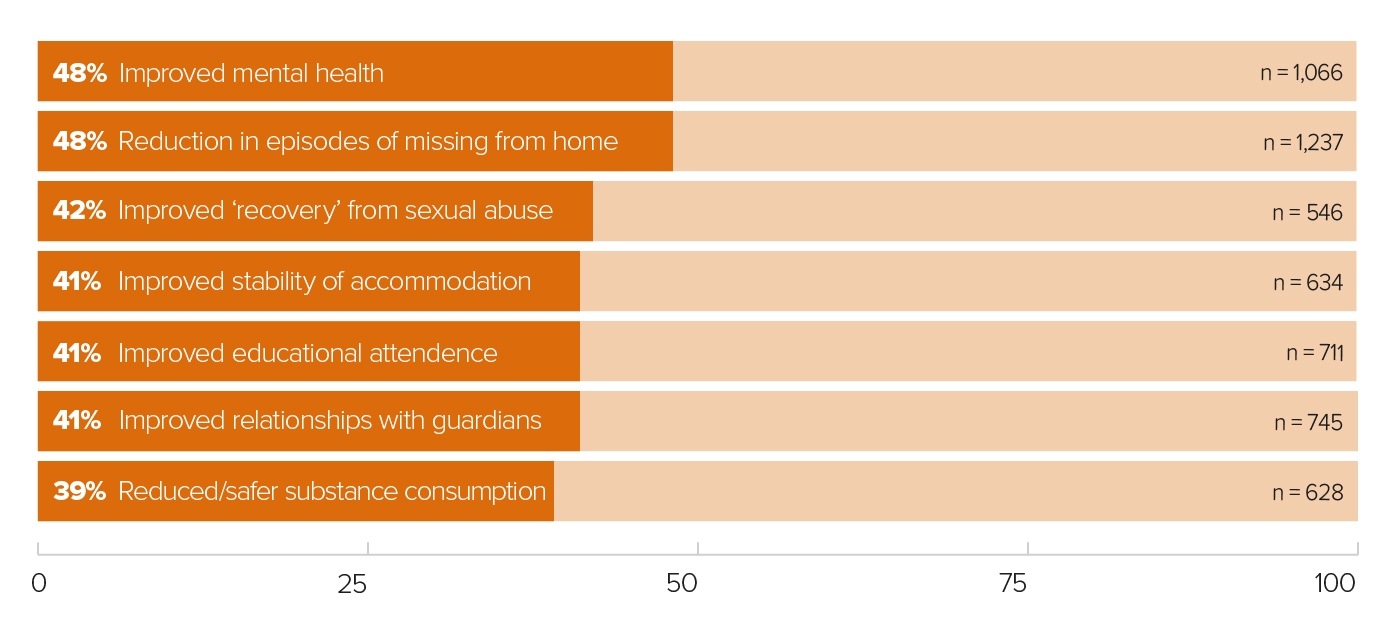
A joined-up response to children with histories of sexual harm
Our Better Futures service in Wales draws together our CSE and HSB provision, in order to provide a joined-up response for children and young people. Better Futures provides assessment and longer-term therapeutic support to children and young people. Our practitioners aim to develop relationships with children, characterised by empathy, trust, connectedness, and, feeling safe. We adopt a positive, solution-focused, strengths-based and child-centred philosophy, and avoid focusing solely on the CSA concern.
At the outset of engagement, we focus on establishing a meaningful connection, in which children and young people feel valued. We use attunement activities4 to help reinforce positive attachments within our relationships, and once a trusting relationship is established we commence work on addressing issues in an encouraging, supportive, and non-blaming way.
In 2017-18 Better Futures has supported 186 children and young people.
Young people who attend Better Futures complete a range of psychometric tests and questionnaires, measuring a range of relevant aspects5 pre and post-intervention. The questionnaires have been developed by Better Futures in partnership with a Consultant Clinical and Forensic Psychologist. Measures used include Trauma Symptom Checklist for Children (TSCC)6 and the Strengths and Difficulties Questionnaire (SDQ)7.
Much of our work at Better Futures focuses on helping children and young people with concepts and skills to understand and develop pro-social attitudes and behaviours. We also focus on wider aspects of development and enhancing a child or young person’s broader life skills, which are transferable to other social settings, and might help children in later life. For example, we help address issues such as social isolation, accessing appropriate opportunities in education, addressing wider issues families may be facing, and improving relationships, communication and social skills. In supporting young people to reconcile and process their past trauma, we are able to help them go on to increase their abilities to form healthy romantic and sexual relationships, thereby reducing risk and need in this context.
As shown in Figure 6, in our Better Futures work with children who display harmful sexual behaviours, we are particularly successful at improving sexual knowledge, and decreasing thinking errors8.
Figure 6: Outcomes for 'Better Futures', 2017-18

Ryan’s story
I guess at the time I didn’t really understand what the problem was. Things like that had happened to me too and at the time I thought most kids knew about sex and that they were ok with what I was doing.
Ryan
Read more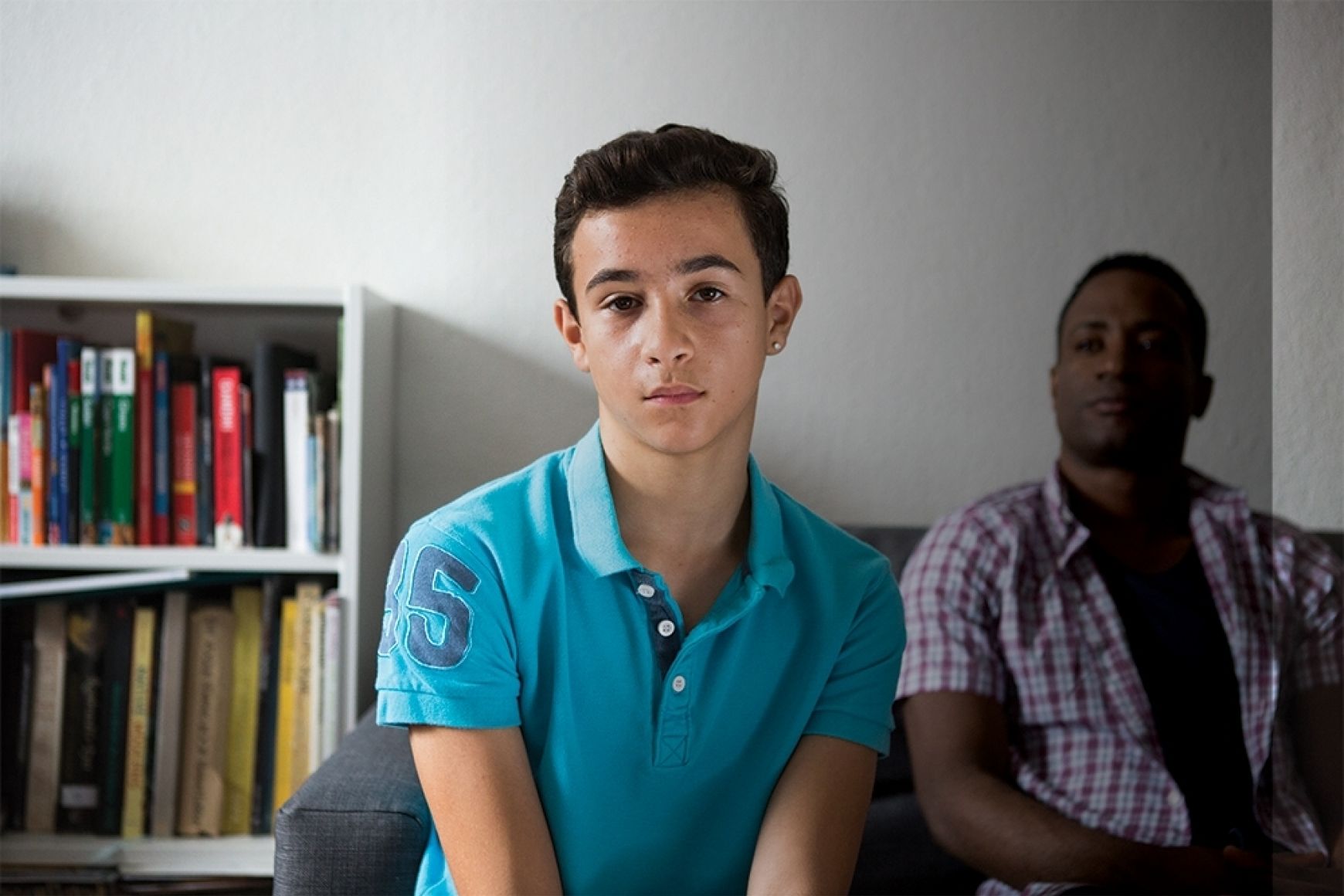
A trauma-focused and trauma-informed model
In September 2017, we launched our Trauma Informed Growth and Empowered Recovery (TIGER) pilot, in London. TIGER focuses on trauma, and adopts an approach which empowers children, by coaching them and helping them regain a sense of agency.
Key components of TIGER are:
- promoting emotional regulation, and ensuring that workers support children to speak about traumatic events if they wish to
- re-empowering children and young people through expert coaching
- promoting recovery through a proven cognitive model of trauma
- supporting children to understand how abuse has affected the way that they think – which is important when adaptive behaviours have become maladaptive over time
- supporting parents and carers in strengthening their relationships to help enable positive, long-term change.
While we work directly with children where we can, we are aware that some children can have multiple professional networks around them, and can be mistrustful of professional support. In some cases, we have worked only with a parent or carer, in order to upskill them to provide support. This flexible approach characterises the TIGER philosophy; if a child has a relationship with a trusted adult, we can engage that adult as a conduit for our work (i.e. based on a team around the child approach).
Between service set up in September 2017 and March 2018, TIGER has worked with 38 people – 23 children and young people and 15 parents or carers.
To ensure we learn from this approach, TIGER will be evaluated by the Anna Freud Centre.
Ayisha’s story
With the support of her TIGER worker, Amy was able to develop a safety plan with Ayisha. Ayisha has responded positively to her safety plan.Read more
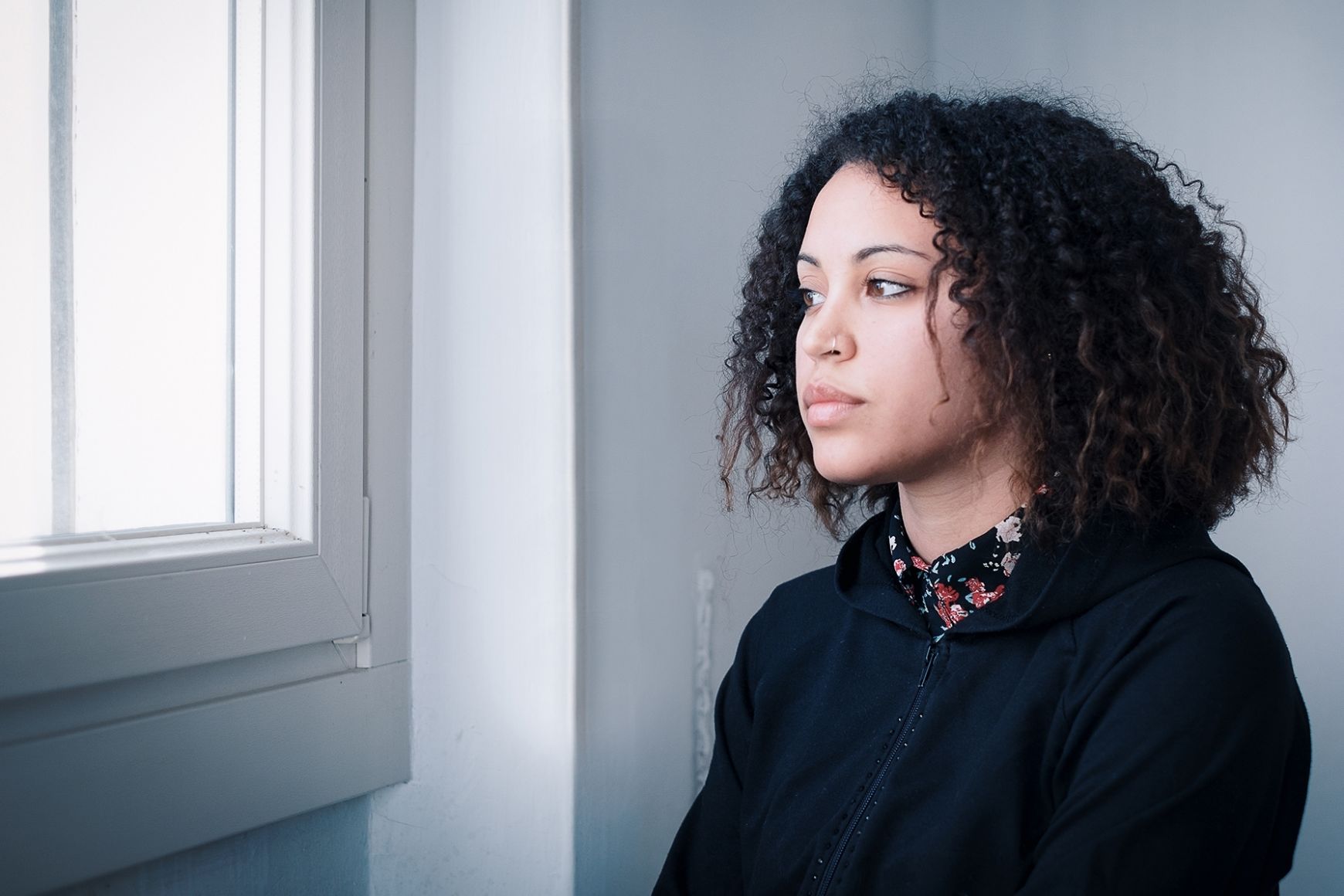
Developing and supporting a child-focused integrated response to CSA
Our Walsall CSA/E service was set up in July 2017, initially as a six month emergency, capacity-building, and safety-planning response to an ongoing police operation. At the time of set up, we anticipated that longer-term support would be required, and as this has proven to be the case, our work is still ongoing.
Our approach is based on evidence9 suggesting that supporting sexually exploited young people and disrupting perpetrators are complex processes that require appropriate and co-ordinated interventions from a range of stakeholders.
In addition to undertaking trauma-informed direct work with children and young people, we also work in partnership with foster carers, and a range of statutory and non-statutory agencies, including health, housing, police, substance misuse services and children’s services. We aim to improve capacity building and skills, in order to initiate wider systems change to further support children and young people where there are exploitation, abuse, or other safeguarding concerns.
Our work has involved:
Direct support for children and young people
- supporting children around disclosure and police investigation processes
- trauma-informed therapeutic interventions such as play therapy
- addressing sexual behaviour, coercive control, grooming and enforced peer-on-peer abuse
- safety planning
- work around managing feelings and behaviours and developing safe coping strategies
- building protective networks
- reducing the impact of trauma.
Additionally, we completed work with children to help them understand the processes they are involved in, and possible future timescales. As part of this, children were supported to complete ‘victim support plans’, to help ensure their voices are heard in relation to the processes they are involved in.
Carer support – we provided training and support to foster carers looking after the children involved in the police investigation. The carers are employed by an independent fostering agency; all are new to fostering, with different levels of skills, expertise, and previous training. We delivered an evidence-informed 12-week specialist foster carer training programme, and supported with psycho-educative work around:
- understanding the impact of CSA
- understanding trauma-informed responses
- managing children’s sexual behaviours
- managing missing episodes, and developing robust responses to these
- online safety.
We also supported carers emotionally – through one-to-one and group support sessions – to develop their resilience and confidence around caring, in order that they can best support children and young people who have experienced trauma, and alleviate likelihood of further abuse or exploitation.
Workforce support and development work – we provided case consultation and supervision to the various workforces involved in the cases. This involved promoting understanding of the impact of abuse and trauma-informed practice; management of disclosures; team building; and, one-to-one and group support for allocated workers, to ameliorate the impact of vicarious trauma, and help staff manage the challenges of working with victims of abuse.
Our work has provided opportunity to support children and young people affected by CSA in a more coordinated way than traditional service provision tends to provide for.
Since service set up, we have supported:
- 15 children
- all children received child-focused victim support plans which capture their voice in relation to their support needs, the legal process, and team around them
- 10 foster carers
- foster carers received our 12-week foster carer development programme, to help them understand the complexities of working with trauma, and develop their own resilience in relation to this
- 8 professionals
- professionals involved in the cases received support around employing trauma-informed case management responses; support to develop robust risk-assessments; and, support to develop strategies to manage the effects of vicarious trauma.10
Results of our work
Children:
- demonstrate a better understanding of the care processes around them
- report increased agency
- report feeling that they are having their views heard and feelings taken into account
- experience a reduction in episodes of missing from home
Carers:
- report increased knowledge in managing challenging behaviours
- evidence an increased understanding of harmful sexual behaviours
- evidence an increased understanding of trauma-informed responses
- report a reduction in displays of challenging behaviour by children
Professionals:
- report that they have increased resilience in their role
- report having received improved access to best practice resources in CSA, CSE and HSB.
Influencing wider policy and practice
In addition to our direct support work, we inform, influence and campaign on CSA and related issues locally, regionally and nationally.
Boys 2: Increasing opportunities for boys and young men to engage in support
In 2017-18, we received Home Office funding to develop Boys 2. With boys and young men as co-creators, Boys 2 focused on identifying approaches to increase opportunities for boys and young men who have been abused to engage in support11.
Boys 2 culminated in development of a workbook, co-produced with the boys and young men, and designed to be used by professionals supporting boys and young men considered to be at risk of CSE, in order to support them to move towards healthy adult relationships. The workbook focuses on areas that were highlighted in the research as key areas of targeted intervention and support to help reduce risk of CSE and other forms of exploitation.
An overarching theme from the Boys 2 project is that relationships matter when engaging with boys and young men at risk of CSE. The boys involved in the project were clear that while they would engage in support to reduce risk and build resilience, they would only progress to engaging in direct intervention if a secure and trusted relationship had been formed, to allow them to feel safe enough to do so. It was important to the boys that they felt accepted by those offering support, and that there was an investment in workers getting to know them without the focus being on the concerns present.
Centre of Expertise on Child Sexual Abuse
The Centre of Expertise on Child Sexual Abuse comprises a multi-disciplinary team, funded by the Home Office and hosted by Barnardo’s. The Centre’s aim is to create a future where children are able to live free from the threat and harm of sexual abuse, by radically improving how we prevent and respond to the issue through thorough understanding of its causes, scale, scope, and impact.
This is achieved through working closely with key partners, to identify, generate and share high quality evidence of what works to prevent and tackle CSA, to inform policy and practice at both operational and strategic levels.
Over 2017-18 the Centre has continued to focus on building knowledge and understanding by:
- collating and analysing existing research, policy, practice and experiences of those affected, and filling identified gaps with new research, insights and analysis
- using that evidence and insight to challenge and improve existing policy and practice, develop new approaches, and increase knowledge and confidence in effectively tackling the issue.
A range of resources and reports are available at www.csacentre.org.uk.
Influencing government
Drawing on our service delivery experience and wider learning, throughout 2017-18, we have continued to provide evidence to government inquiries and consultations around CSA and related issues, across the nations of the UK. This has included:
- giving evidence to the UK government’s Home Affairs Select Committee inquiry into Policing for the Future – we highlighted the particular needs around young people who display HSB, and the policing response they require
- contributing evidence to the Independent Inquiry into Child Sexual Abuse (IICSA) in England – we focused on the often negative and distressing experiences of children and young people involved in the criminal justice system in relation to CSA
- inputting into Department of Health guidance on CSA and Department for Education guidance on sexual violence and harassment in schools
- lobbying for the Department for Education guidance on HSB in schools to have a focus on viewing young people who display HSB as victims
- involvement in the Review of All Wales Child Protection Practice and Protocols, specifically, having representation on CSE and HSB task and finish groups, and also inputting in relation to criminal exploitation; online exploitation; and, trafficking.
In 2017-18, we launched a media campaign in England, along with a coalition of partners, to lobby the Criminal Injuries Compensation Authority (CICA) to change guidance accusing children who have experienced sexual exploitation of consenting to their own abuse. We strongly argued that no child can have ever consented to sexual abuse. The guidance was changed, which should ensure that child victims are not denied compensation on the mistaken grounds that they 'consented' to or complied with their abuse.
Wider learning
Wider learning about achieving Safer Childhoods
Domestic violence and abuse
In Scotland, we worked with Scottish Government officials and a variety of other stakeholders on the development of the Domestic Abuse (Scotland) Bill. Drawing heavily on experiences from our service base, alongside the wider research evidence base, we worked to ensure the resulting legislation accurately reflects the way that women and children experience domestic abuse, and holds abusers to account for the harm their behaviours cause to both women and children. We noted two key issues:
- the proposed provisions did not fully reflect the harmful impact domestic abuse can have on children – i.e. a child does not have to witness (e.g. be physical present for) domestic abuse in order to be adversely affected
- non-harassment orders were not able to protect children in domestic abuse situations, which often allows abusers to continue to abuse women and children, even after conviction.
Amendments were successfully introduced to address these issues.
Relationships and sex education
Over the course of 2017-18 we have fed into government consultations and guidance on healthy relationships education:
- in England, we carried out research with a small number of young people (including care leavers, young parents, and LGBT young people) accessing our services, to explore their views on what should be taught in relationships and sex education (RSE), and how it should be taught12. Our study adds to the existing knowledge on young people’s needs and preferences in this regard, supplementing existing insight on the topics, and providing ‘practice considerations’ for RSE educators. The research report was submitted as evidence to the Department for Education consultation on what the new guidance for schools (upon introduction of statutory RSE in England in September 2019) should contain. As part of our work on RSE, three young people were invited to give their opinions on RSE to MPs in the UK Parliament
- in Wales, we were represented on the Welsh Government Sex and Relationships Education Expert Panel. The report from this work was produced in May 2017, with recommendations for statutory provision for healthy relationships education in the new curriculum. The curriculum has been reviewed, and work is currently ongoing to develop new content and structure13.
“To me, good quality RSE should be taught by a professional and explained in detail....They should also teach that it is ok to like both sexes or to like both males and females because in my opinion young people will struggle to be open about this.”14
National FGM Centre
Leading on the National Female Genital Mutilation (FGM) Centre15, we help prevent and support recovery from instances of child abuse linked to faith or belief. Our vision is to end new cases of FGM in the UK by 2030, and safeguard children from other harmful practices. In 2017-18, our funding was extended, and our remit was widened to include breast ironing/flattening and child abuse linked to faith or belief.
In 2017-18, in addition to our direct support, we shared learning through our online knowledge hub, consultancy, and practice development support.
We have developed FGM multi-agency referral pathways and child protection procedures, working towards transforming how cases are responded to. We have been involved in obtaining six Female Genital Mutilation Protection Orders (FGMPOs) – meaning we have been involved in more applications than any other children’s charity.
Over 2017-18 we have made a concerted effort to focus on professional development and training. We partnered with the Sentencing Council to review the sentencing guidance on child cruelty, which includes FGM. Our input has led to a number of amendments being made. Over this period we delivered CPD-accredited FGM training to over 140 professionals.
Footnotes
- Radford, L. et al (2011) Child abuse and neglect in the UK today. London: NSPCC
- Brown, S., Brady, G., Franklin, A., Bradley, L., Kerrigan, N., & Sealey, C. (2016). Child Sexual Abuse and Exploitation: Understanding Risk and Vulnerability. London: Early Intervention Foundation
- Barnardo's Outcomes Monitoring Framework (BOMF) is an internally-developed distance travelled outcomes tool used to collect data on outcomes for those we support. BOMF comprises 200 outcomes, from which individual Barnardo's services can select the ones most appropriate to their service provision, or which commissioners request reporting against. Outcomes are scored by practitioners in conjunction with those receiving support. The framework uses a scale of five to one, with a score of five representing the highest risk, and is used to track progress of service users throughout their engagement with us
- Attunement describes how reactive a person is to another’s emotional needs and moods. A person who is well attuned will respond with appropriate language and behaviours based on another person’s emotional state
- Aspects measured include: impact of trauma; personality; attitudes towards sexual and non-sexual relationships; ability to manage personal distress and problem solving skills; sexual attitudes; and, victim impact. These aspects are all identified in the somewhat fragmented and incomplete research evidence base as being useful components to consider in helping manage sexualised behaviours in children and young people. Evidence from available research studies also demonstrates that wider parent/carer and family engagement is crucial, and can help to reinforce messages outwith sessions, thereby sustaining positive effects post intervention. Therefore, where possible, we engage other family members in our interventions
- Briere, J. (1996) Trauma Symptom Checklist for Children (TSCC), Professional manual. Odessa, FL: Psychological Assessment Resources
- Goodman, A., & Goodman, R. (2009). Strengths and difficulties questionnaire as a dimensional measure of child mental health. Journal of the American Academy of Child & Adolescent Psychiatry, 48(4), 400-403
- Thinking errors (also called cognitive distortions or cognitive biases) are irrational patterns of thinking that can both cause depression and be caused by depression – the more someone experiences thinking errors the more depressed they feel, the more depressed someone feels the more they experience thinking errors
- Sharp-Jeffs, N., Coy, M. & Kelly, L. (2017) Key messages from research on child sexual exploitation: Multi-agency working. [Online] Available at https://www.csacentre.org.uk/i...
- Vicarious trauma is a process of change resulting from empathetic engagement with trauma survivors. Anyone who engages empathetically with survivors of traumatic incidents, torture, and material relating to their trauma is potentially affected (www.bma.org.uk)
- This work was informed by our previous research indicating that boys and young men impacted by CSA experience a number of barriers to being identified or disclosing abuse, and in accessing support services, and are under-represented in services supporting abuse victims, while over-represented within the criminal justice system
- Barnardo’s (2018) Involve us, respect us. [Online] Available at http://www.barnardos.org.uk/in...
- For further information, see: www.gov.wales/topics/education...
- Evidence given by a young person supported by Barnardo’s to a session in Parliament (15th November 2017) hosted by Sarah Champion MP and Maria Miller MP on what young people want
- A partnership between Barnardo’s and the Local Government Association (LGA), we work closely with

